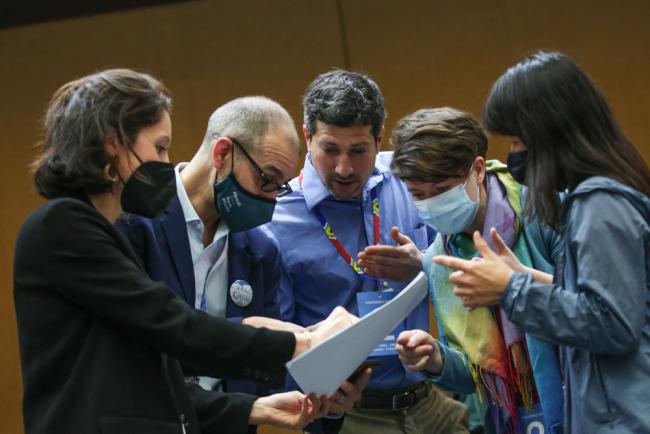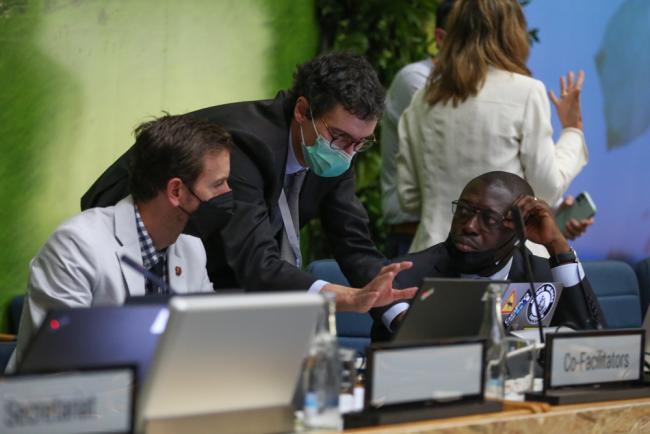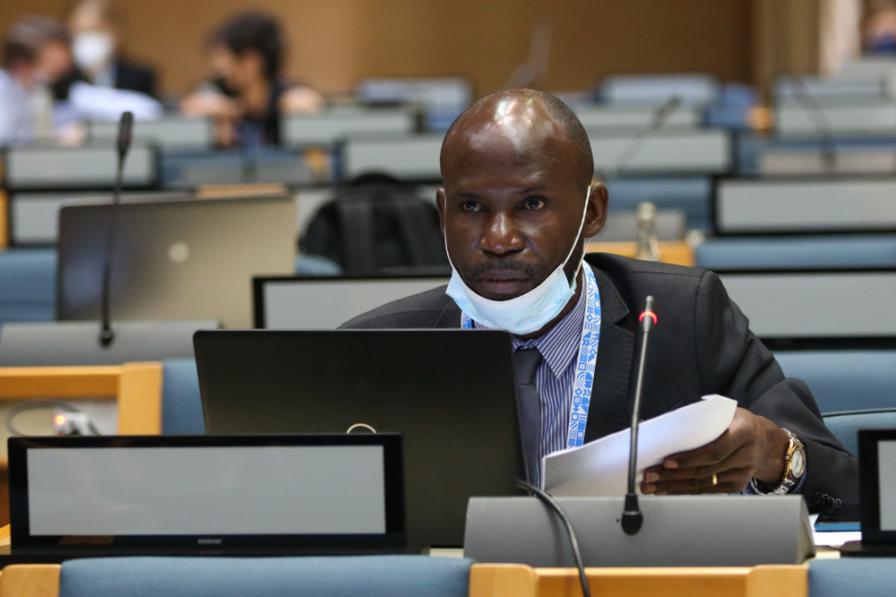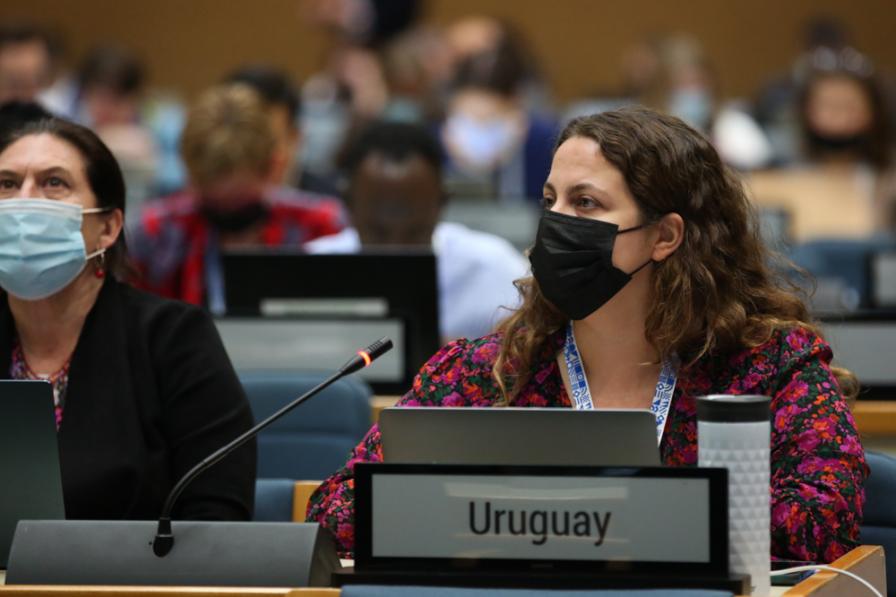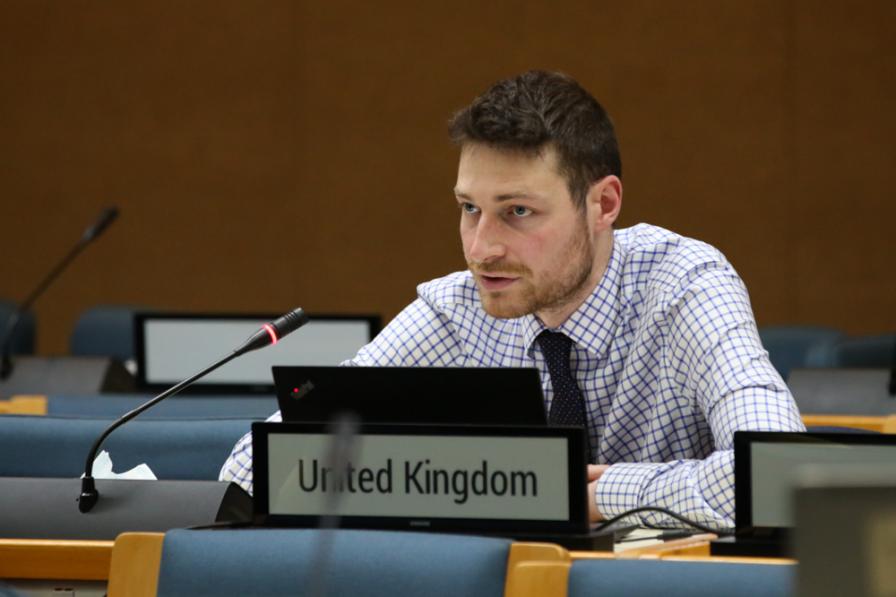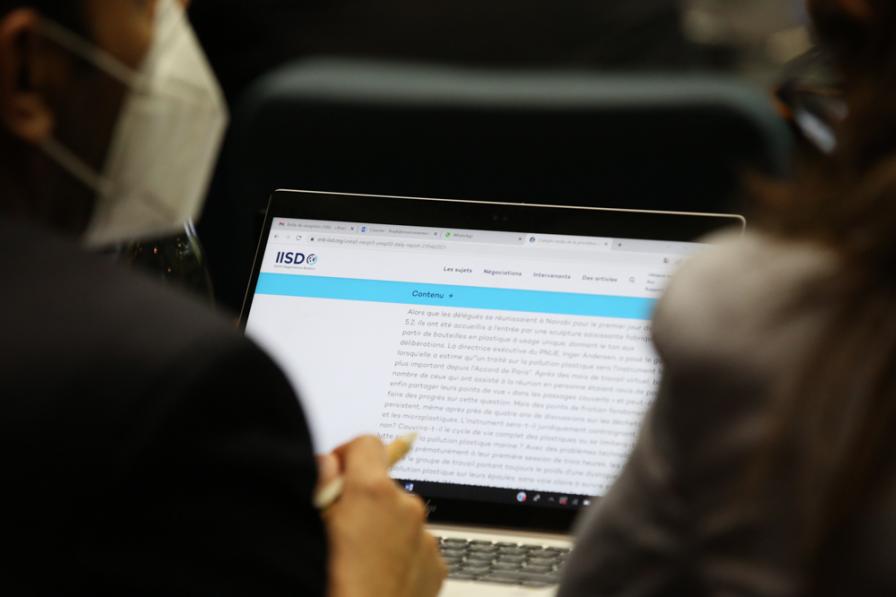On Thursday, 24 February 2022, delegates plowed through a large number of resolutions, meeting in two informal working groups aimed at achieving consensus on key issues. Cluster Co-Facilitators reminded delegates of the limited time at hand and urged them to pursue the delivery of substantive decisions and outcomes from the meeting.
To dive deeper, read the full daily Earth Negotiations Bulletin report.
Working Group 1 continued its deliberations on cluster one, where they made some progress on the Co-Facilitators draft on an internationally legally binding instrument (LBI) on [marine] plastic pollution. They considered whether the instrument would include legally binding provisions, voluntary provisions or a combination of both. In a show of good faith, and after days of deliberations, India acquiesced to merging their draft resolution on addressing single-use plastic product pollution with the Co-Facilitators text. Discussions continued in earnest in informal-informal sessions, expected to continue into the night.
Thereafter, delegates continued discussions on chemicals-related resolutions, focusing on sustainable nitrogen management and the omnibus resolution on the sound management of chemicals and waste. On the former, they agreed to invite states to nominate focal points to the UNEP Working Group on Nitrogen, in a bid to significantly reducing nitrogen waste by 2030.
Working Group 2 began its deliberations with cluster four, tackling sustainable resilient infrastructure. Delegates debated, among others things, on whether to refer to green or sustainable infrastructure, and on ways of ensuring infrastructure projects are subjected to national and international laws and cause no environmental harm.
Delegates reopened discussions on circular economy, noting among others, the need to enhance sustainable consumption and production, promote green public procurement and support technology transfer to enhance the circular economy.
The working group completed the first reading on biodiversity and health, highlighting, among others, the need for cooperation to prevent future zoonotic disease outbreaks. They also discussed prevention measures including enhancing provision of ecosystem services related to health, reversing biodiversity loss, and addressing risks from trade and consumption of wildlife. In their deliberations on a resolution regarding the animal welfare–environment–sustainable development nexus, delegates discussed the importance of protecting wildlife for achieving the 2030 Agenda for Sustainable Development.
To receive free coverage of global environmental events delivered to your inbox, subscribe to the ENB Update newsletter.
All ENB photos are free to use with attribution. For UNEA-5.2, OECPR-5.2, and UNEP@50, please use: Photo by IISD/ENB Kiara Worth.

